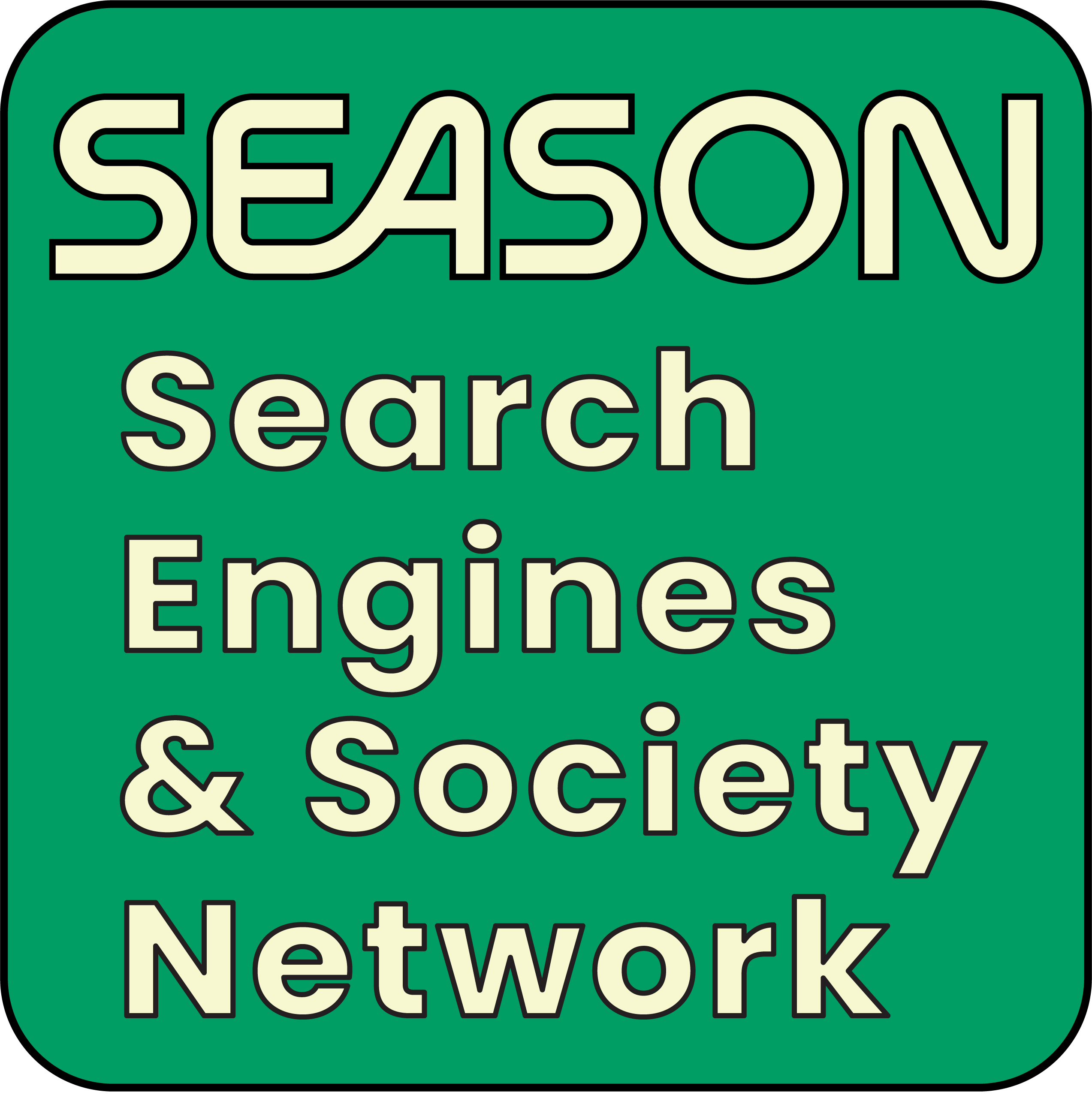Exploring the cultural and societal impact
of search engines
SEASON, The Search Engines and Society Network, brings together researchers and others interested in the diverse roles of search engines in today’s culture and society. After a series of workshops held across Europe, SEASON was set up in 2024 by a group of researchers from different fields and disciplines. Their goal is to highlight search engines as cultural, societal, and technological artifacts that increasingly effect many aspects of society across more and more domains, including politics, education, the economy, health, and the environment.
SEASON serves as a forum promoting dialogue and collaboration across different disciplines and sectors, and a hub for expertise and research-based knowledge on search engines and society.
Additionally, SEASON organizes an annual conference on search engines and society.


